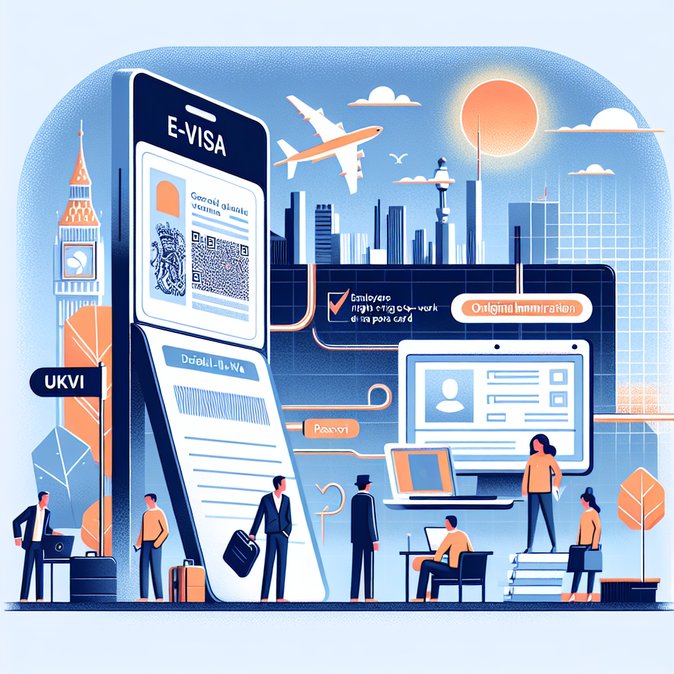
The Home Office has taken another decisive step toward a fully paper-less immigration regime by extending its cloud-based e-visa system to every major visa category. Under the change, which took effect on 30 October 2025, all successful applicants for work, study and family visas—as well as their dependants—and those granted Indefinite Leave to Enter will receive only a digital immigration record, not the traditional visa vignette sticker in their passport.
Context – The UK introduced e-visas for main applicants in July 2025 and has been gradually widening coverage. The latest expansion means that virtually every new long-term migrant will now manage and prove their status online via a UK Visas & Immigration (UKVI) account. The move is part of the government’s 2025 target to eliminate physical documents such as Biometric Residence Permits (BRPs), which expire on 31 December 2024, and replace them with secure electronic records.
How it works – Successful applicants receive an email inviting them to set up or log into a UKVI account. Their e-visa is then automatically linked to the passport or travel document used in the application. Travellers must carry that same document when they enter or leave the UK; airlines and Border Force officers can verify status in real time through existing Advance Passenger Information feeds. Visa conditions—length of stay, right to work or study—remain unchanged; only the method of evidencing them is different.
Business implications – Employers and landlords will increasingly rely on the “View and Prove” online service rather than physical BRP checks when onboarding staff or tenants. Global mobility teams should update right-to-work processes, onboarding guides and HR systems to capture the share code generated by employees. Organisations with assignees arriving in the next few weeks should brief them on creating a UKVI account before travel, as failure to do so could lead to airline boarding denials. The Home Office has allocated £400,000 to fund community groups that will help vulnerable migrants—such as the elderly or those without smartphones—transition to the digital system.
What’s next – The Home Office says full digitisation will be complete in 2026, when legacy BRP holders must switch to e-visas. Officials are also testing a “status wallet” app that will allow offline proof of immigration status at airport e-gates. For corporates, the direction of travel is clear: paper documents are on the way out, and digital compliance workflows are becoming the norm.
Context – The UK introduced e-visas for main applicants in July 2025 and has been gradually widening coverage. The latest expansion means that virtually every new long-term migrant will now manage and prove their status online via a UK Visas & Immigration (UKVI) account. The move is part of the government’s 2025 target to eliminate physical documents such as Biometric Residence Permits (BRPs), which expire on 31 December 2024, and replace them with secure electronic records.
How it works – Successful applicants receive an email inviting them to set up or log into a UKVI account. Their e-visa is then automatically linked to the passport or travel document used in the application. Travellers must carry that same document when they enter or leave the UK; airlines and Border Force officers can verify status in real time through existing Advance Passenger Information feeds. Visa conditions—length of stay, right to work or study—remain unchanged; only the method of evidencing them is different.
Business implications – Employers and landlords will increasingly rely on the “View and Prove” online service rather than physical BRP checks when onboarding staff or tenants. Global mobility teams should update right-to-work processes, onboarding guides and HR systems to capture the share code generated by employees. Organisations with assignees arriving in the next few weeks should brief them on creating a UKVI account before travel, as failure to do so could lead to airline boarding denials. The Home Office has allocated £400,000 to fund community groups that will help vulnerable migrants—such as the elderly or those without smartphones—transition to the digital system.
What’s next – The Home Office says full digitisation will be complete in 2026, when legacy BRP holders must switch to e-visas. Officials are also testing a “status wallet” app that will allow offline proof of immigration status at airport e-gates. For corporates, the direction of travel is clear: paper documents are on the way out, and digital compliance workflows are becoming the norm.










